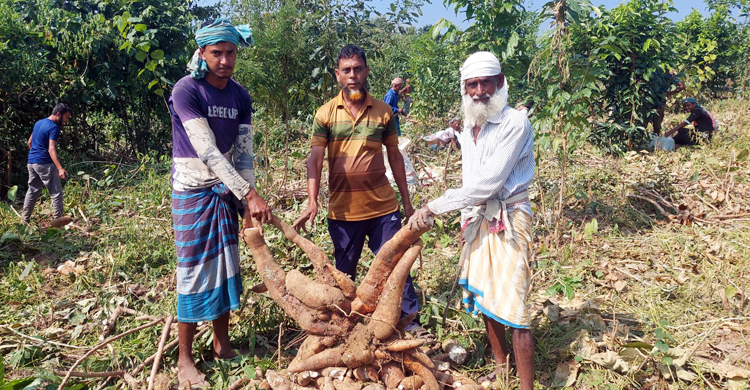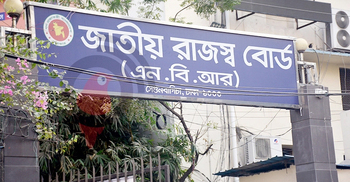PRAN aims to collect 35,000 tonnes of cassava

The contractual farmers of PRAN are now passing busy time to harvest cassava in their lands across the country. Besides collecting the crops, farmers are also planting seeds at a time for next year.
Cassava is a root crop which is planted in fallow lands and hilly areas with a little cost and labor. In Bangladesh, the crop is popularly known as ‘Shimul Alu’.

The agro-processor is collecting cassava from the farmers land directly and farmers have cultivated cassava more than 5500 acres of land this season. PRAN sets target to procure 35,000 tons of cassava this season.
Kamruzzaman Tito, Head of Contract Farming of PRAN said, “Farmers of Rangamati, Khagrachhari, Sylhet, Habiganj, Moulvibazar, Tangail and Cumilla districts have cultivated cassava in fallow lands and hilly areas. Previous year, we got 29000 tons of cassava from 4822 acres of land. This year, our expectation is 7 tons of crop in an average from one acre of land.”

He also said that both cultivation and collection have been occurred at a time. Farmers started collecting crops in November last year and will be completed in May this year. After collecting the crops, they plant the seeds. Farmers are now showing interest to cultivate cassava because they are being benefitted economically and getting more crops.
Kamruzzaman Kamal, Marketing Director of PRAN-RFL Group said, “We send cassava to our plant in Habiganj Industrial Park in Shayestaganj of Habiganj after collecting from the field. PRAN is manufacturing starch from Cassava in the plant. Cassava starch is used as raw material for processing food like bread, cake, biscuit and noodles. Besides, Cassava starch is now been widely used in garment and pharmaceuticals industries.”

He also added that PRAN introduced contract farming of cassava in 2014. PRAN has been encouraging the farmers to grow the new crop under its contract farming. Through the cassava project, the hilly & fallow lands are being used and the famers are also being benefitted economically. PRAN is encouraging the farmer by conducting training programs, giving financial assistance and providing instruments and seeds at a low cost.





